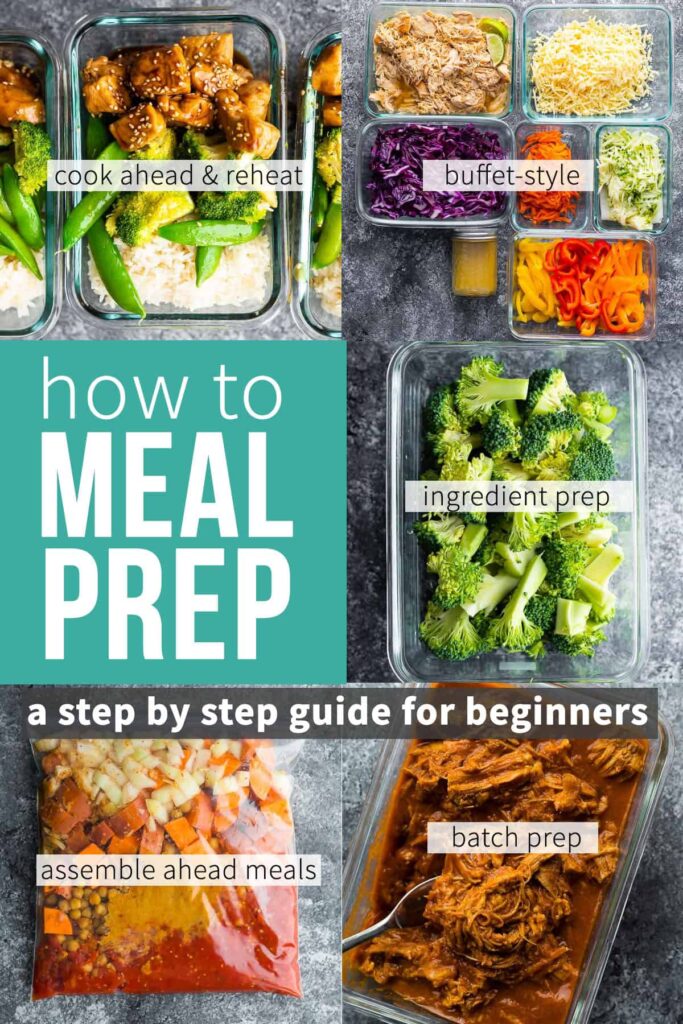Meal planning is a great way to save time and money while maintaining a healthy diet. There are five tips to ensure meal planning success: start with a plan, create a grocery list, prep ingredients in advance, use storage solutions effectively, and remain flexible and adaptable. When creating a plan, consider taste preferences and dietary requirements. When making a grocery list, organize it according to categories. Preparing ingredients in advance saves time and energy throughout the week. Storage solutions such as vacuum sealers help preserve food quality and prevent waste. Remaining flexible and adaptable helps adjust to unforeseen circumstances. Overall, meal planning can become an enjoyable and rewarding experience with a little preparation and dedication.
5 Tips for Successful Meal Planning: How to Plan, Shop and Meal Prep for the Week Ahead
Introduction
Meal planning can be a helpful strategy for saving time, money, and reducing food waste. It can also be an effective solution for maintaining a healthy diet. Rather than losing precious hours thinking up meal ideas or aimlessly wandering the grocery store, developing an effective meal planning strategy can help make the process more streamlined and efficient. Here are five tips to help ensure success in meal planning, shopping, and meal prep.
1) Start with a plan
The first step in successful meal planning is to develop a plan. Take some time to write out a weekly or monthly menu including breakfast, lunch, dinner, and snacks. Consider what ingredients are required for each meal and make a detailed list to ensure that you have everything you need. Choose meals that fit your taste preferences and dietary requirements, as well as your schedule. Create a plan that allows you to reuse leftovers and repurpose different ingredients throughout the week.
2) Create a grocery list
The next step is to create a grocery list. This involves scanning your plan and hoping to find out what ingredients you need to purchase for the week ahead. Develop a list that matches your meal plan, and bring it with you to the store. Organize your list according to categories such as fruits, vegetables, meat, dairy, and dry goods. This will help to streamline your shopping experience and ensure that you don’t forget anything essential.
3) Prep ingredients in advance
Preparing ingredients in advance can be a game-changer when it comes to meal planning. Try to allocate a specific period each week for meal prep, such as Sunday afternoon, to wash, chop, roast and freeze ingredients where necessary. This can save significant time and energy during the week, allowing you to have meals prepared in minutes. Cook ingredients such as grains, proteins, and vegetables ahead to make meal assembly quick and easy.
4) Use storage solutions effectively
Storage solutions can be a great help when it comes to meal planning. When you buy ingredients in bulk or have leftovers, store them in airtight containers in the fridge, freezer or pantry to stay fresh. Try using a food vacuum sealer for sealing foods like meat, chicken or fish, which can lengthen their shelf life up to five times more than normal storage. This helps to preserve food quality and prevents waste.
5) Stay flexible and adaptable
Another tip for successful meal planning is to remain flexible and adaptable. Life can get hectic, and setbacks or unforeseen circumstances can occur, which can disrupt your meal planning. Remain flexible and adapt to unexpected changes by adjusting your plan accordingly, such as postponing a meal to a later date, repurposing leftovers or freezing them for later use. Don’t be afraid to change your schedule, and ultimately, find solutions that fit your lifestyle and needs.
Conclusion
Meal planning is an excellent tool for creating healthier habits, reducing food waste, and saving money. By starting with a plan, creating a detailed shopping list, prepping ingredients in advance, using storage solutions effectively, and remaining adaptable and flexible, you can save time and energy, improve your diet, and reduce your carbon footprint. With a little preparation and dedication, meal planning can become an enjoyable and rewarding experience. Try implementing these five tips and see what works best for you.
